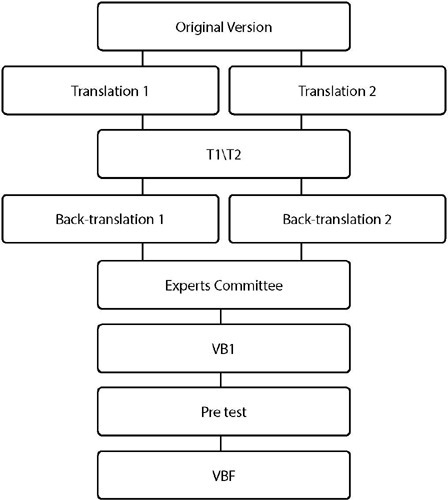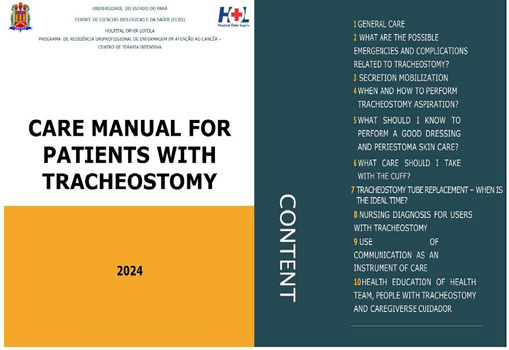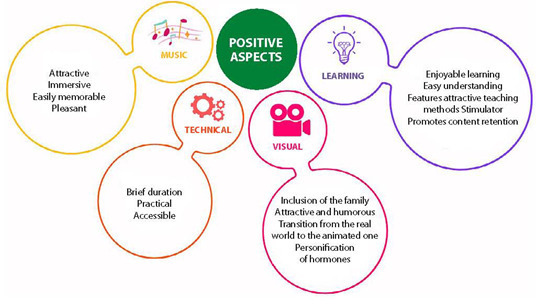-
RESEARCH01-01-2016
Nurses’ performance on indigenous and African-Brazilian health care practices
Revista Brasileira de Enfermagem. 2016;69(5):840-846
Abstract
RESEARCHNurses’ performance on indigenous and African-Brazilian health care practices
Revista Brasileira de Enfermagem. 2016;69(5):840-846
DOI 10.1590/0034-7167.2016690504
Views0See moreABSTRACT
Objective:
to analyze the performance of nurses from the Estratégia Saúde da Família (Family Health Strategy) on health care practices rooted in African and Indigenous cultures.
Methods:
Thematic Oral History was used and interviews were conducted with seven participants, who worked with Primary Health Care in Northeastern Brazil. The analysis was based on Leininger’s Theory of Cultural Care and the intercultural concept of human rights, among others.
Results:
nurses are unaware of the religious and historical context of the ethnic groups cared for and do not appreciate their self-care practices in areas with a predominance of African and indigenous cultures. These practices coexist with the hegemonic biomedical model.
Conclusion:
the debate on cultural competence in the context of professional qualification and exercise is required, aiming to promote the nursing work in the perspective of diversity and comprehensiveness of health care.
-
RESEARCH01-01-2016
Accessibility assessment of assistive technology for the hearing impaired
Revista Brasileira de Enfermagem. 2016;69(5):833-839
Abstract
RESEARCHAccessibility assessment of assistive technology for the hearing impaired
Revista Brasileira de Enfermagem. 2016;69(5):833-839
DOI 10.1590/0034-7167.2016690503
Views0ABSTRACT
Objective:
to assess the automatic accessibility of assistive technology in online courses for the hearing impaired.
Method:
evaluation study guided by the Assessment and Maintenance step proposed in the Model of Development of Digital Educational Material. The software Assessor and Simulator for the Accessibility of Sites (ASES) was used to analyze the online course “Education on Sexual and Reproductive Health: the use of condoms” according to the accessibility standards of national and international websites.
Results:
an error report generated by the program identified, in each didactic module, one error and two warnings related to two international principles and six warnings involved with six national recommendations. The warnings relevant to hearing-impaired people were corrected, and the course was considered accessible by automatic assessment.
Conclusion:
we concluded that the pages of the course were considered, by the software used, appropriate to the standards of web accessibility.
Keywords:Digital ExclusionDistance EducationInternetPeople with Hearing DisabilitiesSelf-help EquipmentSee more -
RESEARCH01-01-2016
Functional disability: health conditions and physical activity practice in older adults
Revista Brasileira de Enfermagem. 2016;69(5):825-832
Abstract
RESEARCHFunctional disability: health conditions and physical activity practice in older adults
Revista Brasileira de Enfermagem. 2016;69(5):825-832
DOI 10.1590/0034-7167.2016690502
Views0See moreABSTRACT
Objective:
to verify the prevalence of functional disability among older adults and how it can affect their health conditions and the regular practice of physical activities.
Method:
this is a household and cross-sectional study conducted with older adults of both sexes. We verified the variables associated with functional disability by Poisson’s regression.
Results:
around 420 older adults participated in this study (68.1% of them being women). We observed a statistically significant association between functional disability, the number of chronic diseases, self-assessed health conditions, and the practice of physical activities; the latter only being found among men. Older adults who reported presenting four or more chronic diseases, self-assessed their health conditions as poor, and were not used to practice physical activities, showing high prevalence of functional disability.
Conclusion:
considering the changeable character of these variables, we recommend that prevention actions be taken, mainly at primary level, to delay the emergence of disability.
-
RESEARCH01-01-2016
Organizational culture of a psychiatric hospital and resilience of nursing workers
Revista Brasileira de Enfermagem. 2016;69(5):817-824
Abstract
RESEARCHOrganizational culture of a psychiatric hospital and resilience of nursing workers
Revista Brasileira de Enfermagem. 2016;69(5):817-824
DOI 10.1590/0034-7167.2016690501
Views0ABSTRACT
Objective:
to analyze the organizational culture of a psychiatric hospital and identify the capacity of resilience of nursing workers.
Method:
quantitative research. For data collection, were used the Brazilian Instrument for Evaluation of Organizational Culture (IBACO – Instrumento Brasileiro para Avaliação da Cultura Organizacional) and the Resilience Scale (RS).
Results:
participants reported the existence of centralization of power and devaluation of workers, despite recognizing the existence of collaboration at work and practices for improving interpersonal relations. In relation to the capacity of resilience, 50% of workers showed high level, and 42.9% a medium level of resilience. The correlation tests revealed negative values between the IBACO and RS domains, indicating that the lower the appreciation of individuals in the institution, the greater their capacity of resilience.
Conclusion:
the organizational values reflect the work organization model in the institution that devalues the workers’ needs and requires greater capacity of resilience.
Keywords:Hospital AdministrationNursingOrganizational CulturePsychological ResilienceWorkers' HealthSee more -
EDITORIAL01-01-2016
Making our nursing research matter
Revista Brasileira de Enfermagem. 2016;69(5):813-814
Abstract
EDITORIALMaking our nursing research matter
Revista Brasileira de Enfermagem. 2016;69(5):813-814
DOI 10.1590/0034-7167-2015-0156
Views0Nurses worldwide are being increasingly exposed to new and interesting research methodologies. At the same time, they are feeling considerable pressure to ensure that the studies they propose are sufficiently methodologically rigorous to pass the scrutiny of review for funding or publication. In this context, it is increasingly important to remind ourselves that methodological rigor […]See more -
EDITORIAL01-01-2016
Fazendo nossa pesquisa em enfermagem ser relevante
Revista Brasileira de Enfermagem. 2016;69(5):813-814
Abstract
EDITORIALFazendo nossa pesquisa em enfermagem ser relevante
Revista Brasileira de Enfermagem. 2016;69(5):813-814
DOI 10.1590/0034-7167-2015-0156
Views0Enfermeiros em todo o mundo estão cada vez mais expostos a metodologias de pesquisa novas e interessantes. Ao mesmo tempo, sentem uma pressão considerável para assegurar que os estudos a que se propõem são suficientemente rigorosos metodologicamente para passar pelo crivo de avaliação para fomento ou publicação. Nesse contexto, é cada vez mais importante lembrarmos […]See more -
REVIEW01-01-2016
O Espiritismo como terapia no cuidado em saúde na epilepsia
Revista Brasileira de Enfermagem. 2016;69(4):804-810
Abstract
REVIEWO Espiritismo como terapia no cuidado em saúde na epilepsia
Revista Brasileira de Enfermagem. 2016;69(4):804-810
DOI 10.1590/0034-7167.2016690425i
Views0See moreRESUMEN
Objetivo:
presentar una breve historia del Espiritismo, la visión de la epilepsia por el Espiritismo, y el potencial de la espiritualidade y religiosidad como tratamientos complementarios y coadyuvantes de la epilepsia.
Método:
esta es una breve revisión del impacto de la fe, la espiritualidad y religiosidad, en particular la filosofía espiritual como tratamiento complementario de los trastornos neurológicos (centrada especialmente en la epilepsia) y la salud mental. Para esto, se realizó una revisión de la religiosidad/espiritualidad y la epilepsia en la base de datos PubMed y SciELO.
Conclusión:
el ejercicio de la espiritualidad y la religiosidad puede ser una estrategia de afrontamiento y tratamiento positivo para apoyar la terapia tradicional de los pacientes con epilepsia y otros trastornos neurológicos. Sin embargo, es necesario desmitificar muchas creencias sobre la epilepsia así como mejorar el conocimiento sobre este importante aspecto de la dimensión de salud entre profesionales, cuidadores y pacientes para explorar su potencial para el tratamiento y el apoyo.
-
REVIEW01-01-2016
The Spiritism as therapy in the health care in the epilepsy
Revista Brasileira de Enfermagem. 2016;69(4):804-810
Abstract
REVIEWThe Spiritism as therapy in the health care in the epilepsy
Revista Brasileira de Enfermagem. 2016;69(4):804-810
DOI 10.1590/0034-7167.2016690425i
Views0See moreABSTRACT
Objective:
to present a brief history of Spiritism, the vision of epilepsy by Spiritism, and the potential of spirituality and religiosity care as complementary and coadjutants treatments in epilepsy.
Method:
this is a brief review about the impact of faith, spirituality, and religiosity, particularly the Spiritism philosophy as complementary treatment to neurological disorders (particularly focusing on epilepsy) and mental health. We conduct a review of published articles (about religion/spirituality and epilepsy) in the Pubmed and SciELO databases.
Conclusion:
the exercise of spirituality and religiosity can be a positive coping strategy to support the traditional therapy of patients with epilepsy and other neurological disorders. However, it is necessary to demystify myths and beliefs about the epilepsy and improve knowledge about this important health dimension among professionals, patients, and caregivers to explore their full treatment and supportive potential.
-
ERRATUM01-01-2016
ERRATUM
Revista Brasileira de Enfermagem. 2016;69(1):206-206
Abstract
ERRATUMERRATUM
Revista Brasileira de Enfermagem. 2016;69(1):206-206
DOI 10.1590/0034-7167.20166901e02
Views0In the article “Conceptions of mid-level nursing professionals facing those with a chemical dependency”, with the number of DOI: 10.1590/0034-7167.2015680610i, published in the journal Revista Brasileira de Enfermagem, v68(6):755-60, page 760 that read:“8. Vargas D, Soares J. Knowledge and attitudes of nurses towards alcohol and related problems: the impact of an educational intervention. Rev Esc […]See more -
ERRATUM01-01-2016
ERRATUM
Revista Brasileira de Enfermagem. 2016;69(1):205-205
Abstract
ERRATUMERRATUM
Revista Brasileira de Enfermagem. 2016;69(1):205-205
DOI 10.1590/0034-7167.20166901e01
Views0In the article “Using the theory of meaningful learning in nursing education”, with the number of DOI: 10.1590/0034-7167.2015680420i, published in the journal Revista Brasileira de Enfermagem, v68(4):626-35, page 627 that read:“Ausubel was descended from Jewish, born in New York in 1918 and died in 1994 at the age of 75. He thought and wrote until […]See more -
EXPERIENCE REPORT01-01-2016
Nursing process documentation: rationale and methods of analytical study
Revista Brasileira de Enfermagem. 2016;69(1):197-204
Abstract
EXPERIENCE REPORTNursing process documentation: rationale and methods of analytical study
Revista Brasileira de Enfermagem. 2016;69(1):197-204
DOI 10.1590/0034-7167.2016690126i
Views0See moreABSTRACT
Objective:
to describe the methods used to analyze the associations between variables of service, nursing and the nursing process documentation in institutions of the Department of Health of the State of São Paulo.
Method:
multilevel analytical study with data obtained in the domains of institution, units of the institution and nursing professionals who work there, using standardized instruments. The analyses had as axis the degree of completeness of the nursing process documentation in units or institutions and their association with variables of nursing personnel, of units and of institutions.
Conclusion:
This study will provide important empirical evidence on the factors involved in the nursing process documentation.
-
EXPERIENCE REPORT01-01-2016
Qualitative methodologies in health research: interpretive referential of Patricia Benner
Revista Brasileira de Enfermagem. 2016;69(1):192-196
Abstract
EXPERIENCE REPORTQualitative methodologies in health research: interpretive referential of Patricia Benner
Revista Brasileira de Enfermagem. 2016;69(1):192-196
DOI 10.1590/0034-7167.2016690125i
Views0See moreABSTRACT
Objective:
this article reports on the experience of using the interpretive phenomenological framework of Patricia Benner in a Brazilian context. Benner’s interpretive phenomenology, based on existential and interpretative philosophy, aims to understand human experiences in the particular worlds of research participants. Data were collected through interviews with nine nurses in November and December 2014.
Results:
data analysis process according to Benner’s framework consisted of: transcription, coding, thematic analysis, and search for paradigmatic cases and examples. Therefore, the prior knowledge of the researcher is an important part of the study, consisting in manners of the research conduction.
Conclusion:
The use of this methodological framework entailed a great challenge for the researcher, however, it also enabled a unique opportunity to illuminate important existential phenomena related to the daily lives of research participants.
-
REVIEW01-01-2016
Nurses’ performance on primary care in the National Health Service in England
Revista Brasileira de Enfermagem. 2016;69(1):182-191
Abstract
REVIEWNurses’ performance on primary care in the National Health Service in England
Revista Brasileira de Enfermagem. 2016;69(1):182-191
DOI 10.1590/0034-7167.2016690124i
Views0See moreABSTRACT
Objective:
To analyze the expansion of nursing roles in primary care in the English National Health Service and the implications for professional practice.
Method:
qualitative research in case study format, held in London, England, in six primary care units. Data were obtained through interviews with nine nurses. After the thematic data analysis, two units emerged: the nurses’ performance characteristics and effects of the expansion of nursing roles.
Results:
expansion of nurses’ roles: consultation, diagnosis and drug therapy, case management and monitoring of chronic conditions. Repercussions: for the user, there was improved access, communication and comprehensive care, increased duration of consultations, resulting in greater adherence; for nurses, there was the expansion of professional skills, knowledge and professional recognition; to the health care system, it resulted in cost savings.
Conclusion:
benefits in expanding nursing roles, were visible, contributing to primary care quality.
-
REVIEW01-01-2016
Meleis’ Nursing Theories Evaluation: integrative review
Revista Brasileira de Enfermagem. 2016;69(1):174-181
Abstract
REVIEWMeleis’ Nursing Theories Evaluation: integrative review
Revista Brasileira de Enfermagem. 2016;69(1):174-181
DOI 10.1590/0034-7167.2016690123i
Views0See moreABSTRACT
Objective:
to analyze the application of the theory evaluation model proposed by Meleis in Brazilian studies.
Method:
integrative review of online articles published from 2002 to 2012 in the databases LILACS and BDENF.
Results:
the 16 selected studies confirmed the use of only three of the five stages proposed for Meleis’ theories analysis: Description of the Theory, Criticism of the Theory and Analysis of the Theory, with a predominance of a single unit of analysis in each.
Conclusion:
the analysis of nursing theories provides support to nurses in the practice, research, education and administration of the different dimensions of care. Meleis’ model figures as very important by contributing to the development of knowledge of nursing discipline, considering that its use as a method allows several reflections on theories in order that they be revalidated to support a more theoretical and practical applicability.

-
REVIEW01-01-2016
Clinical indicators of sexual dysfunction in pregnant women: integrative literature review
Revista Brasileira de Enfermagem. 2016;69(1):165-173
Abstract
REVIEWClinical indicators of sexual dysfunction in pregnant women: integrative literature review
Revista Brasileira de Enfermagem. 2016;69(1):165-173
DOI 10.1590/0034-7167.2016690122i
Views0ABSTRACT
Objective:
to identify the nursing diagnosis clinical indicators of sexual dysfunction in pregnant women.
Method:
it is an integrative literature review, with research in databases using the keywords “sexual*”, “pregnan*” and “function*”. Studies included had an abstract available for analysis, referring to pregnant women over 18 years old, written in Portuguese, French, Spanish and English, with publication date between 2010 and 2014. Studies that reporting pregnant women with an associated pathology were excluded.
Results:
sexual dysfunction in pregnant women is consistent in the literature. Nine defining characteristics were identified and 16 related factors, some not classified in NANDA International.
Conclusion:
clinical indicators can be added to the nursing diagnosis to favor an accurate diagnosis and effective interventions in the surveillance of pregnancy as a period of healthy sexual experience.
Keywords:Physiological Sexual Dysfunction, Psychogenic Sexual DysfunctionPregnant WomenReviewSexual BehaviorSee more
-
RESEARCH01-01-2016
Conditions of functional health literacy of an elderly diabetics group
Revista Brasileira de Enfermagem. 2016;69(1):156-164
Abstract
RESEARCHConditions of functional health literacy of an elderly diabetics group
Revista Brasileira de Enfermagem. 2016;69(1):156-164
DOI 10.1590/0034-7167.2016690121i
Views0See moreABSTRACT
Objective:
to evaluate the conditions of functional health literacy of an elderly diabetics group.
Method:
cross-sectional and descriptive study, with diabetic’s elderly assisted in the SUS (N = 114). The social and health conditions were evaluated as well as functional health literacy by S-TOFHLA test (short version); the simple proportions, average, standard deviation and Pearson’s Chi-square were described by SPSS software (20.0) with α = 5% value.
Results:
the mean age was 67.4 years, 74.0% of the elderly were women, had up to four years of schooling; 29.8% had a long-standing illness, 64.0% reported having high blood pressure, 47.4% smoke or were smokers, 73.7% had low functional health literacy, which was associated with schooling p = 0.001.
Conclusions:
the low functional health literacy could be a self-care conditioning and can be influenced by low schooling because it implies to have skills to understand and make decisions aimed at self-management of health.
-
ORIGINAL ARTICLE06-14-2024
Duração e qualidade do sono da equipe de enfermagem brasileira que trabalha em turnos
Revista Brasileira de Enfermagem. 2024;77(2):e20230167
Abstract
ORIGINAL ARTICLEDuração e qualidade do sono da equipe de enfermagem brasileira que trabalha em turnos
Revista Brasileira de Enfermagem. 2024;77(2):e20230167
DOI 10.1590/0034-7167-2023-0167
Views0See moreRESUMEN
Objetivo:
analizar la duración y calidad del sueño en profesionales de enfermería que trabajan por turnos.
Método:
investigación analítica, transversal, realizada entre septiembre de 2017 y abril de 2018, en un hospital público del sur de Brasil, con el equipo de enfermería. Se utilizó el cuestionario sociolaboral y de síntomas de salud, la Escala de Somnolencia de Epworth y el Índice de Calidad del Sueño de Pittsburgh. Los datos se presentan como estadística descriptiva e inferencial, análisis bivariado y regresión logística binaria.
Resultados:
participaron 308 profesionales de enfermería, con predominio de sueño prolongado, ausencia de somnolencia y mala calidad del sueño. La duración corta del sueño (<6 h) se asoció con turnos de día y mala calidad del sueño. La calidad del sueño se asoció con la presencia de somnolencia diurna excesiva y con el trabajo diurno.
Conclusión:
los turnos de trabajo, el insomnio y la cefalea fueron los principales factores relacionados con la falta de sueño de los profesionales de enfermería. Los resultados pueden justificar el desarrollo de investigaciones de intervención para la salud de los trabajadores.
-
ORIGINAL ARTICLE06-14-2024
Sleep duration and quality of Brazilian nursing staff who work in shifts
Revista Brasileira de Enfermagem. 2024;77(2):e20230167
Abstract
ORIGINAL ARTICLESleep duration and quality of Brazilian nursing staff who work in shifts
Revista Brasileira de Enfermagem. 2024;77(2):e20230167
DOI 10.1590/0034-7167-2023-0167
Views0See moreABSTRACT
Objective:
to analyze sleep duration and sleep quality in nursing professionals who work in shifts.
Method:
this is a cross-sectional, analytical research, carried out between September 2017 and April 2018, at a public hospital in southern Brazil, with the nursing team. A socio-occupational and health symptoms questionnaire, the Epworth Sleepiness Scale, and the Pittsburgh Sleep Quality Index were used. Data are presented as descriptive and inferential statistics, bivariate analysis, and binary logistic regression.
Results:
participants were 308 nursing professionals with a predominance of long-term sleep, absence of drowsiness, and poor sleep quality. Short-term sleep (<6h) was associated with day shift and poor sleep quality. Sleep quality was associated with presence excessive daytime sleepiness and work day shift.
Conclusion:
work shift, insomnia and headache were the main factors related short-term sleep for nursing professionals. The results may justify the development of intervention research for workers’ health.
-
ORIGINAL ARTICLE06-14-2024
Translation and Cross-Cultural Adaptation of the LYMPH-ICF Instrument for Lymphedema into Portuguese/Brazil
Revista Brasileira de Enfermagem. 2024;77(2):e20230137
Abstract
ORIGINAL ARTICLETranslation and Cross-Cultural Adaptation of the LYMPH-ICF Instrument for Lymphedema into Portuguese/Brazil
Revista Brasileira de Enfermagem. 2024;77(2):e20230137
DOI 10.1590/0034-7167-2023-0137
Views0ABSTRACT
Objective:
The aim of this study is to cross-culturally adapt the Lymphoedema Functioning, Disability and Health Questionnaire Lymphoedema (LYMPH-ICF) instrument into Brazilian Portuguese and conduct a pilot application (n = 10), without psychometric pretensions.
Method:
Methodological research was conducted, following the steps of translation, synthesis, back-translation, and evaluation by the expert committee. Two translators, two back-translators, and twelve professionals participated in the expert committee. A pretest was carried out with 10 patients with secondary lymphedema due to breast cancer. The degree of agreement was determined by the content validity coefficient.
Results:
It was necessary to modify 8 out of the 29 questions comprising the questionnaire, which exhibited idiomatic disagreement. However, despite these changes, there were no indications of impairments, as content reliability was achieved through a validity coefficient of 0.90.
Final Considerations:
The instrument was successfully translated and cross-culturally adapted for Brazil with a high level of agreement.
Keywords:Breast NeoplasmsHealth CareInternational Classification of Functioning, Disabiliy and HealthLymphedemaPatient Health QuestionnaireSee more
-
ORIGINAL ARTICLE05-27-2024
Fall Tailoring Interventions for Patient Safety Brazil Program: an evaluability study in a teaching hospital
Revista Brasileira de Enfermagem. 2024;77(2):e20230348
Abstract
ORIGINAL ARTICLEFall Tailoring Interventions for Patient Safety Brazil Program: an evaluability study in a teaching hospital
Revista Brasileira de Enfermagem. 2024;77(2):e20230348
DOI 10.1590/0034-7167-2023-0348
Views0See moreABSTRACT
Objectives:
to present the theoretical model, logic model, and the analysis and judgment matrix of the Fall TIPS Brazil Program.
Methods:
a qualitative, participatory research approach, in the form of an evaluability study, encompassing the phases (1) problem analysis; (2) program design, development, and adaptation to the Brazilian context; (3) program dissemination. Data were collected through document analysis and workshops.
Results:
through document analysis, workshops with stakeholders from the participating institution, and validation with key informants, it was possible to identify the program’s objectives, expected outcomes, and the target audience. This allowed the construction of theoretical and logic models and, through evaluative questions, the identification of indicators for the evaluation of the Fall TIPS Brazil Program.
Final Considerations:
this study has provided insights into the Fall TIPS program, the topic of hospital fall prevention, and the proposed models and indicators can be employed in the implementation and future evaluative processes of the program.

-
ORIGINAL ARTICLE05-27-2024
Nursing care protocol for critical users with tracheostomy under mechanical ventilation
Revista Brasileira de Enfermagem. 2024;77(2):e20230337
Abstract
ORIGINAL ARTICLENursing care protocol for critical users with tracheostomy under mechanical ventilation
Revista Brasileira de Enfermagem. 2024;77(2):e20230337
DOI 10.1590/0034-7167-2023-0337
Views0See moreABSTRACT
Objectives:
to develop and assess a nursing care protocol for critically ill users with tracheostomy under mechanical ventilation.
Methods:
a methodological study, developed through two phases, guided by the 5W2H management tool: I) target audience characterization and II) technology development.
Results:
thirty-four nursing professionals participated in this study, who presented educational demands in relation to care for critical users with tracheostomy, with an emphasis on standardizing care through a protocol and carrying out continuing education.
Final Considerations:
the creation and validity of new technologies aimed at this purpose enhanced the participation of nursing professionals and their empowerment in the health institution’s microsectoral actions and in macrosectoral actions, highlighting the need for public policies that guarantee the conduct of a line of care for users with tracheostomy.

-
ORIGINAL ARTICLE05-27-2024
Assessment of educational technology in lactation physiology by health students
Revista Brasileira de Enfermagem. 2024;77(2):e20230252
Abstract
ORIGINAL ARTICLEAssessment of educational technology in lactation physiology by health students
Revista Brasileira de Enfermagem. 2024;77(2):e20230252
DOI 10.1590/0034-7167-2023-0252
Views0ABSTRACT
Objectives:
to assess the suitability, facilitators, and barriers of using a video clip for teaching lactation physiology to health students.
Methods:
a cross-sectional study was conducted with online data collection at a higher education institution, using the Assistive Technology Assessment Instrument and open-ended questions. The sample consisted of 88 students.
Results:
the video clip was deemed suitable in all attributes. Facilitators identified included attractiveness, musicality, and ease of access. Barriers noted were the music’s speed and the necessity for prior knowledge. The video clip achieved adequate scores for interactivity (1.71), purpose (1.77), relevance (1.64), and clarity (1.77). The overall average of the attributes was 1.72.
Conclusions:
the video clip can serve as an effective learning strategy to enhance hybrid education, potentially contributing to the promotion and support of breastfeeding. However, some barriers underscore the importance of prior knowledge for a complete understanding of the content.
Keywords:Biomedical Technology AssessmentEducational TechnologyHealth Sciences StudentsNursingTranslational Biomedical SciencesSee more
-
ORIGINAL ARTICLE05-27-2024
Technology for nursing care in a Maternal Intensive Care Unit: a methodological study
Revista Brasileira de Enfermagem. 2024;77(2):e20230202
Abstract
ORIGINAL ARTICLETechnology for nursing care in a Maternal Intensive Care Unit: a methodological study
Revista Brasileira de Enfermagem. 2024;77(2):e20230202
DOI 10.1590/0034-7167-2023-0202
Views0See moreABSTRACT
Objectives:
to develop and validate a nursing care plan in a Maternal Intensive Care Unit.
Methods:
a methodological study, developed in stages: integrative review; Nursing History construction; care plan restructuring; appearance and content validity by judges.
Results:
the history was organized into sections: Identification; Basic Human Needs; Physical Examination; and Assessment of Basic Human Needs. A care plan was restructured with 34 diagnoses, organized according to basic human needs. A satisfactory level of appearance validity of the history and care plan was obtained (Concordance Index varying between 86.3 and 100 for both instruments), and content validity with average indexes of 90.8 and 92.8, respectively. Thirty-four diagnoses, their interventions and nursing actions were consolidated.
Conclusions:
the instruments were considered relevant and pertinent in terms of appearance and content, and their use in the institution under study as well as in other similar services may be recommended.
-
EDITORIAL05-13-2024
Metodologia qualitativa: considerações e singularidades sobre a implementação de intervenções centradas na pessoa
Revista Brasileira de Enfermagem. 2024;77(3):e770301
Abstract
EDITORIALMetodologia qualitativa: considerações e singularidades sobre a implementação de intervenções centradas na pessoa
Revista Brasileira de Enfermagem. 2024;77(3):e770301
DOI 10.1590/0034-7167.2024770301pt
Views0A investigação qualitativa em saúde permite a compreensão aprofundada de como a pessoa experiencia as diferentes transições de saúde, a relação com os profissionais de saúde e a passagem pelos diferentes ambientes de prática clínica. Concomitantemente, tem o potencial de suportar a tomada de decisão clínica dos profissionais e de empoderar o cidadão na sua […]See more
Search
Search in:
Nuvem de Tags
Aged (144) Atenção Primária à Saúde (239) COVID-19 (104) Cuidados de Enfermagem (269) Educação em Enfermagem (151) Educação em Saúde (139) Enfermagem (930) Estudos de Validação (131) Health Education (144) Idoso (208) Mental Health (149) Nursing (987) Nursing Care (306) Patient Safety (151) Primary Health Care (284) Qualidade de Vida (104) Quality of Life (106) Saúde Mental (145) Segurança do Paciente (150) Validation Studies (108)



